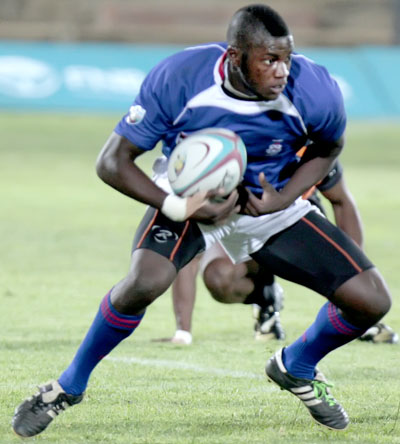Latest News Archive
Please select Category, Year, and then Month to display items
05 June 2018
Photo Supplied
 Archaeological excavations in the Wonderwerk Cave, north of Kuruman in the Northern Cape.
Archaeological excavations in the Wonderwerk Cave, north of Kuruman in the Northern Cape.
Research fellow Dr Lloyd Rossouw from the Department of Plant Sciences at the University of the Free State (UFS) recently published an article in the Nature Ecology and Evolution journal with Dr Michaela Ecker from the University of Toronto as lead author, and Dr James Brink, research fellow at the UFS Centre for Environmental Management. The findings described in “The palaeoecological context of the Oldowan-Acheulean in southern Africa” provides the first extensive paleoenvironmental sequence for the interior of southern Africa by applying a combination of methods for environmental reconstruction at Wonderwerk Cave, which have yielded multiple evidence of early human occupation dating back almost two million years ago.
Where water once was
The Wonderwerk Cave is found north of the Kuruman hills (situated in Northern Cape) a 140m long tube with a low ceiling. The surroundings are harsh. Semi-arid conditions allow for the survival of only hardy bushes, trees, and grasses. But during the Early Pleistocene, stepping out of the Wonderwerk Cave you would have been greeted by a completely different site, the researchers found. Using carbon and oxygen stable isotope analysis on the teeth of herbivores (Dr Ecker), fossil faunal abundance (Dr Brink), as well as the analysis of microscopic plant silica remains (phytoliths) excavated from fossil soils inside the cave (Dr Rossouw), the results show that ancient environments in the central interior of southern Africa were significantly wetter and housed a plant community unlike any other in the modern African savanna.
What difference does it make?
While East African research shows increasing aridity and the spread of summer-rainfall grasslands more than a million years ago, the results from this study indicate an interesting twist. During the same period, shifts in rainfall seasonality allowed for alternating summer and winter-rainfall grass occurrences coupled with prolonged wetlands, that remained major components of Early Pleistocene (more or less the period between one and two million years ago) environments in the central interior of southern Africa. That means our human ancestors were also living and evolving in environments other than the generally accepted open, arid grassland model.
Kovsie rugby players represent the UFS internationally
2010-04-17
 |
Jamba Ulengo
Foto: Gerhard Louw |
This year rugby players from the University of the Free State (UFS) not only excelled at national level when Vishuis won the Steinhoff Koshuis Rugby League and Shimlas managed to play in the semi-finals of the Varsity Cup, but they also achieved great heights in the international sports arena.
Kovsie rugby players Hoffman Maritz, Philip van der Walt and JW Jonker have all been included in the South African Sevens Team since November last year. According to Mr Dougie Heymans from KovsieSport at the UFS, the three players have already played in some of the eight tournaments in, amongst others, Dubai, Australia and Hong Kong and they have acquitted themselves well in the team. They are still going to participate in the tournaments in England (22-23 May 2010) and Scotland (29-30 May 2010) respectively.
Jamba Ulengo will also represent the UFS in the SA Student Sevens Team that is going to participate in the Casablanca University Sevens tournament in Morocco from 1-6 April 2010. The Casablanca University Sevens Tournament is an initiative of the Confederation of African Rugby (CAR) that is subscribed and supported by the International Rugby Council to develop rugby in the rest of Africa.
Kovsies Francois du Toit, Jamba Ulengo, Marcel van der Merwe and Nico Scheepers were also part of the SA U/20 group that toured France in February 2010. According to Mr Heymans they also played two games against Argentina in South Africa. “The ‘Jong Bokkies’ won the first match with 39-7. The second match was a 20-20 tie,” he said.